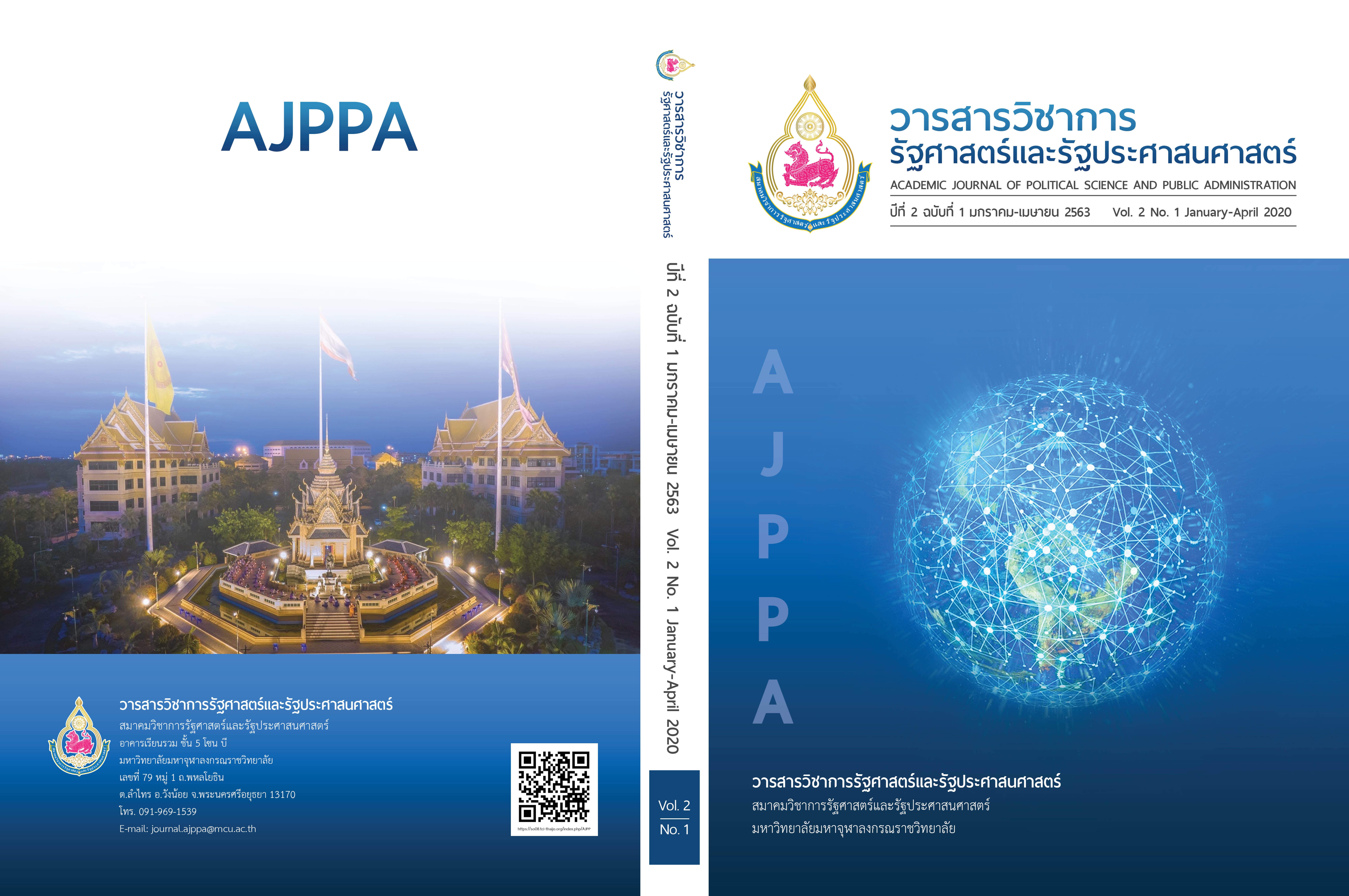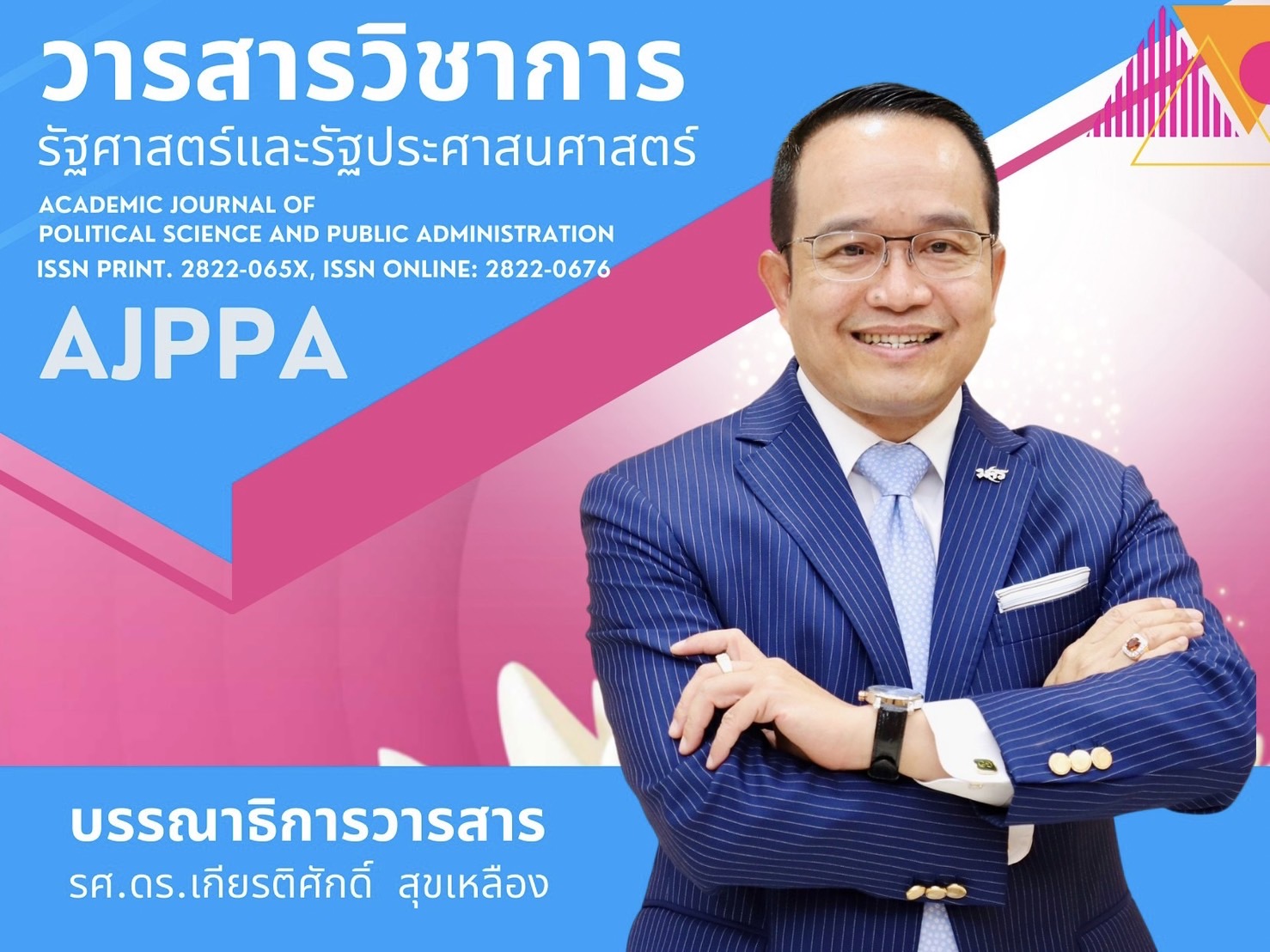ทุนมนุษย์ : แนวคิด วิวัฒนาการและแนวโน้ม
คำสำคัญ:
ทุนมนุษย์, การจัดการบทคัดย่อ
“มนุษย์” (Human) จัดว่าเป็น “ทุน” (Capital) ที่สำคัญที่สุดในการขับเคลื่อนองค์กร เนื่องจากมนุษย์เป็นสิ่งมีชีวิตชนิดเดียวในโลกที่สามารถสร้างสรรค์สิ่งอันเป็นประโยชน์อเนกอนันต์ให้กับองค์การได้ สิ่งที่สำคัญยิ่งกว่านั้นก็คือกำลังสมองที่มีอยู่ในตัวมนุษย์นั่นเอง ซึ่งถือว่าเป็นทรัพย์ภายในอันจะก่อให้เกิดประโยชน์ต่อองค์กรมากมาย โดยเฉพาะอย่างยิ่งในยุคปัจจุบันซึ่งถือว่าเป็นยุคแห่งการเปลี่ยนแปลงที่เรียกกันว่า“กระแสโลกาภิวัตน์” (Globalization) ต้องยอมรับว่า “ทุนทางปัญญา” (Intellectual Capital) ซึ่งเป็นสินทรัพย์ที่จับต้องไม่ได้ (Intangible Asset) มีความสำคัญมากขึ้นโดยเฉพาะอย่างยิ่งสังคมและเศรษฐกิจปัจจุบันกำลังมุ่งเข้าสู่ยุคเศรษฐกิจฐานความรู้ (Knowledge-based Economy) ทุกองค์กรไม่ว่าภาครัฐ เอกชน องค์กรรัฐวิสาหกิจ ต่างล้วนให้ความสำคัญเรื่องการบริหาร “คน” อันเป็นเรื่องที่ทุกองค์กรไม่สามารถหลีกเลี่ยงได้อีกต่อไป
เอกสารอ้างอิง
Armstrong, S. & Mitchell, B. (2016). Scripture HR Translated from The Essential HR Handbook Translated by Komkrit Jongboonwattana. Bangkok: Expernet.
Becker, G. (1964). Human Capital: A Theoretical and Empirical Analysis. New York: National Bureau of Economic Research.
Graton, L & Ghoshal, S. (2003). Managing Personal Human Capital: New Ethos for the “Volunteer” Employee. European management Journal, 21(1), 1-10.
Kongkasawat, T. (2007). Human capital. Defining indicators for development. Bangkok: Technology Promotion Association (Thai-Japanese).
Pinkaysorn, K. et al. (2007). Human Capital: Human Capital Indicators Organization level. Journal of Graduate Studies Valaya Alongkorn Rajabhat University In the royal patronage, 11(2), 193-202.
Ponphai, R. (2014). Causal Relationship and Outcome of Knowledge Sharing of Organizational Personnel: The Empirical Phenomenon of Thai Commercial Banks (Doctor of Thesis). Bangkok: Silpakorn University.
Prateep, C. (2008). Human capital and human capital management. In the teaching document Human Resource Development Kit Unit 2. Nonthaburi: Sukhothai Thammathirat Open University Management Science Program.
Thammachinda, C. (2010). Human resource management, strategic plan, human resource management and implementation of the plan. Bangkok: The Damrong Rajanupab Institute.
Vetjayanont, N. (2008). New Dimension in Human Capital Management. Bangkok: Graphic Systems Company.
Witthayudom, W. (2006). Human Resource Management. Bangkok: Thira Film and Cytex.

ดาวน์โหลด
เผยแพร่แล้ว
รูปแบบการอ้างอิง
ฉบับ
ประเภทบทความ
สัญญาอนุญาต

อนุญาตภายใต้เงื่อนไข Creative Commons Attribution-NonCommercial-NoDerivatives 4.0 International License.




